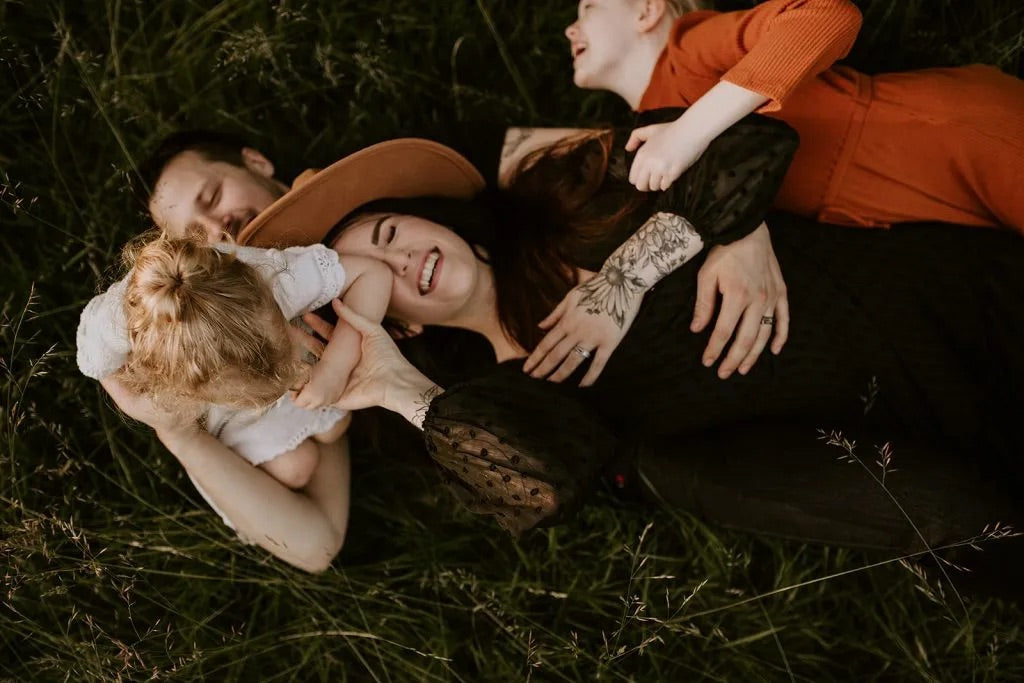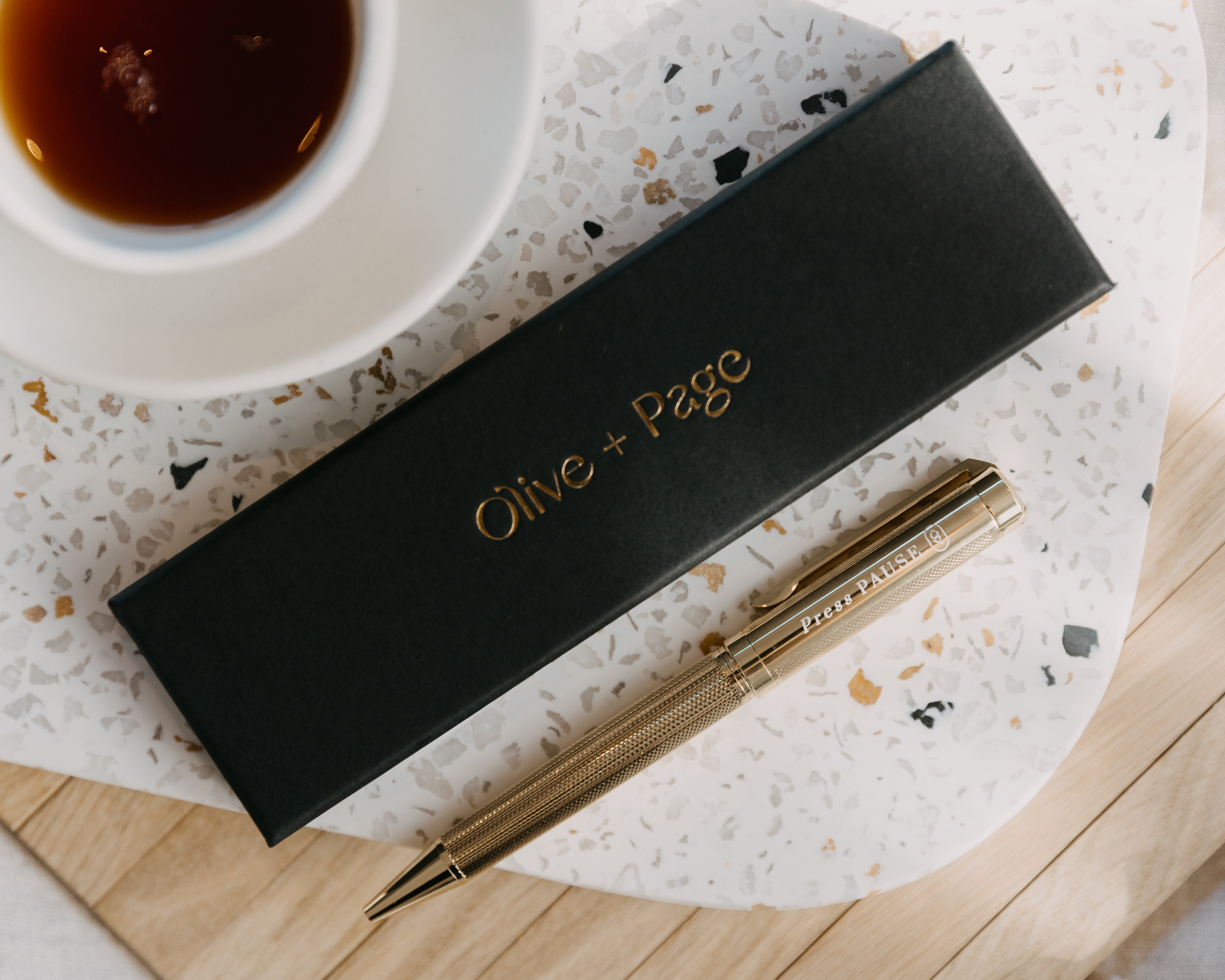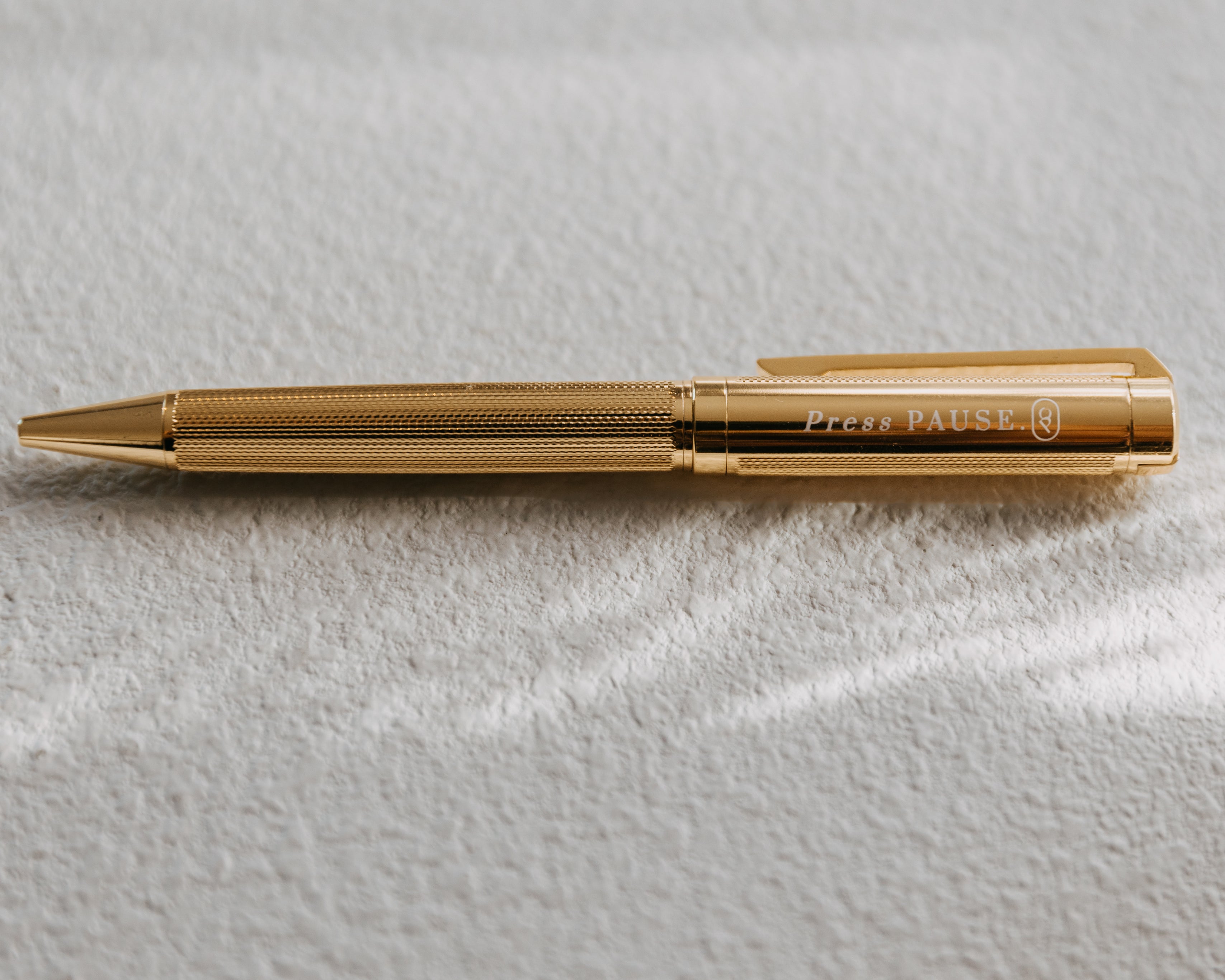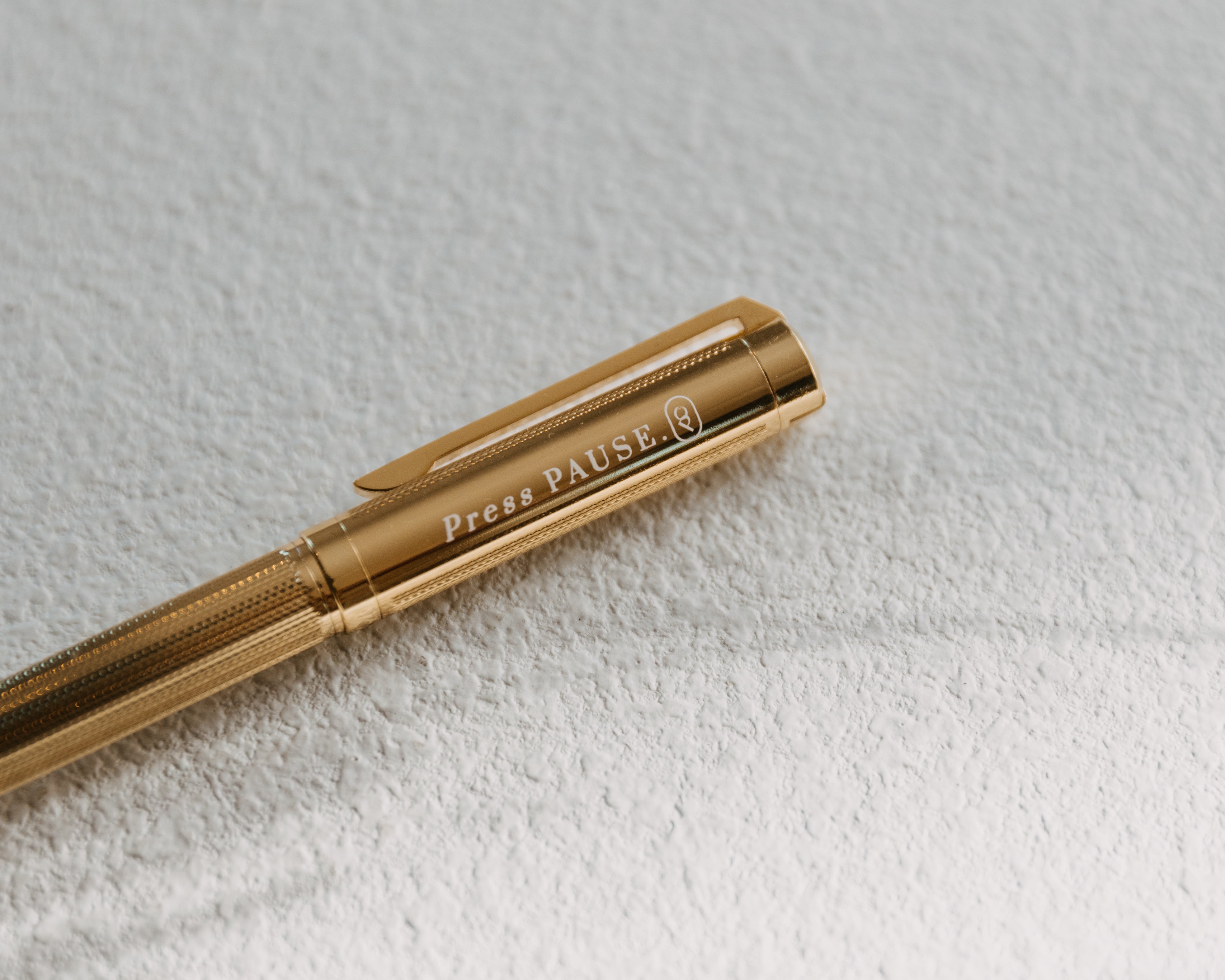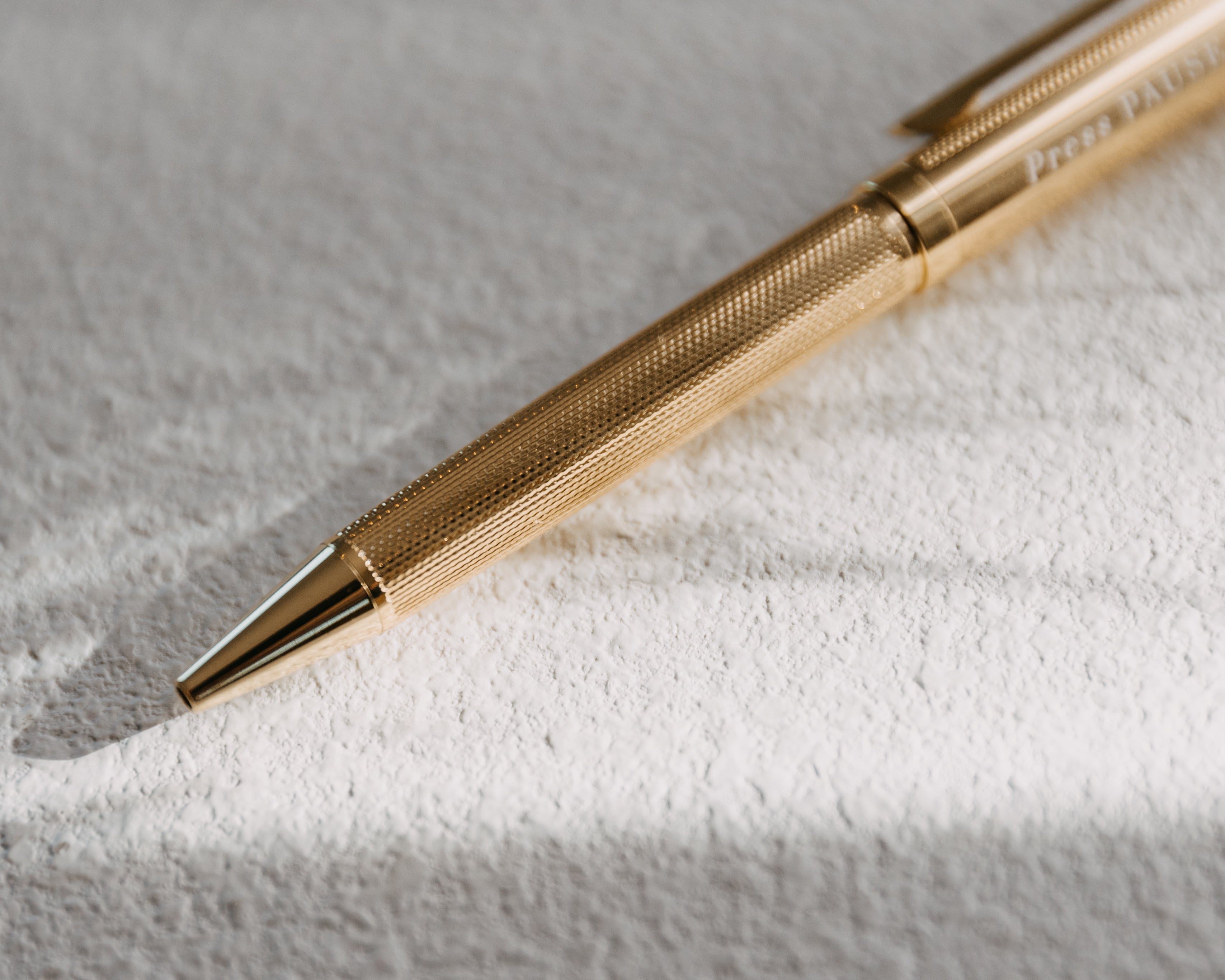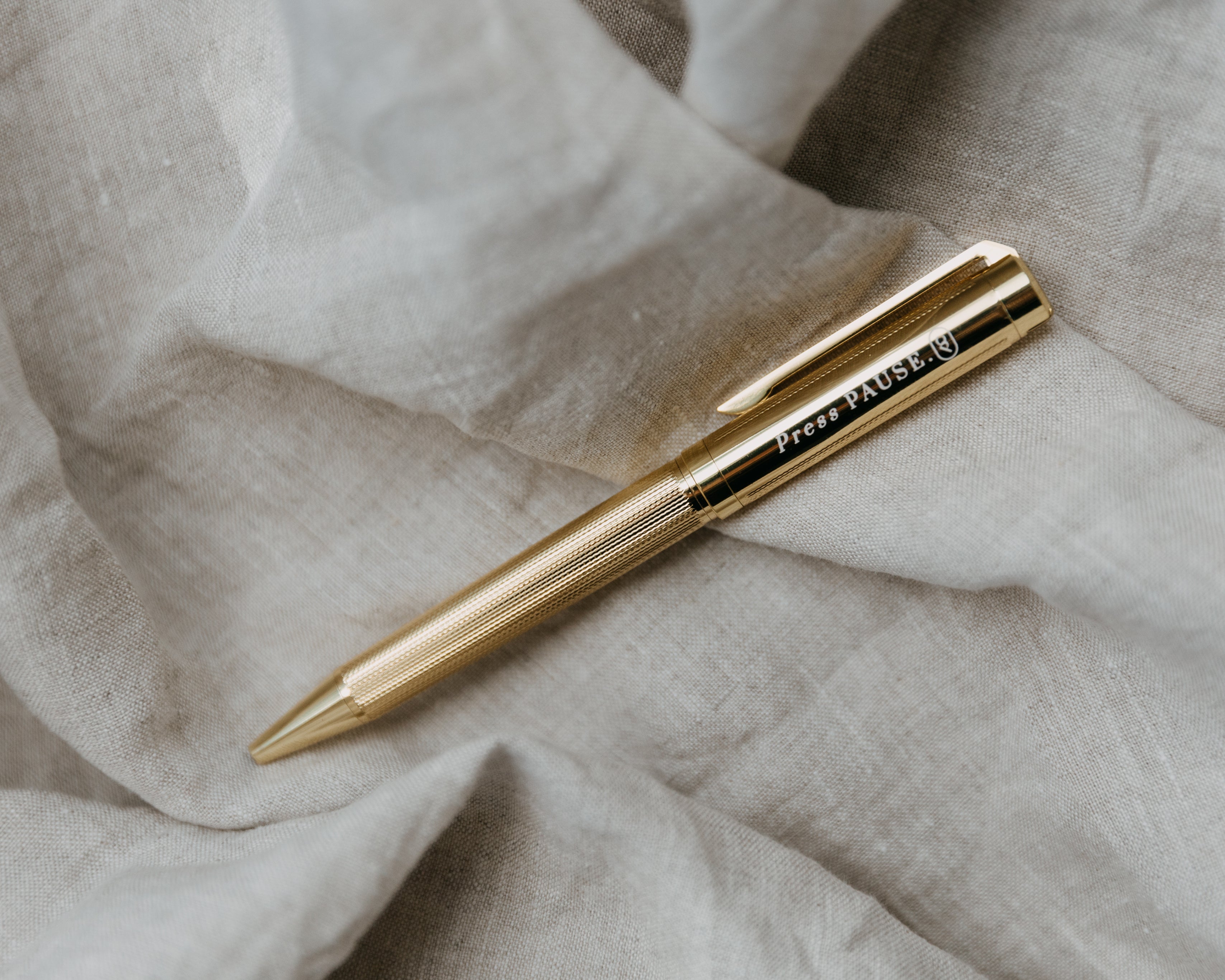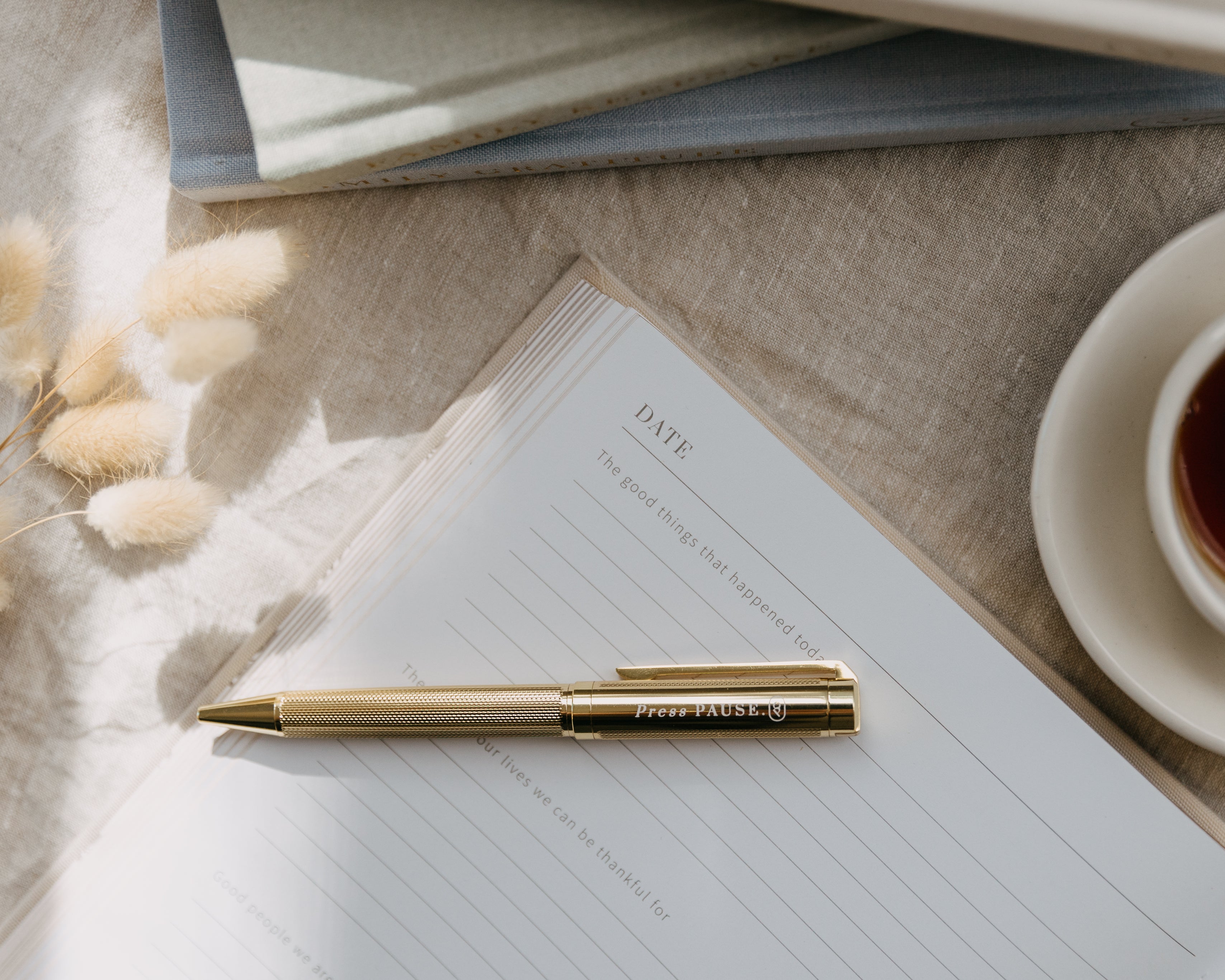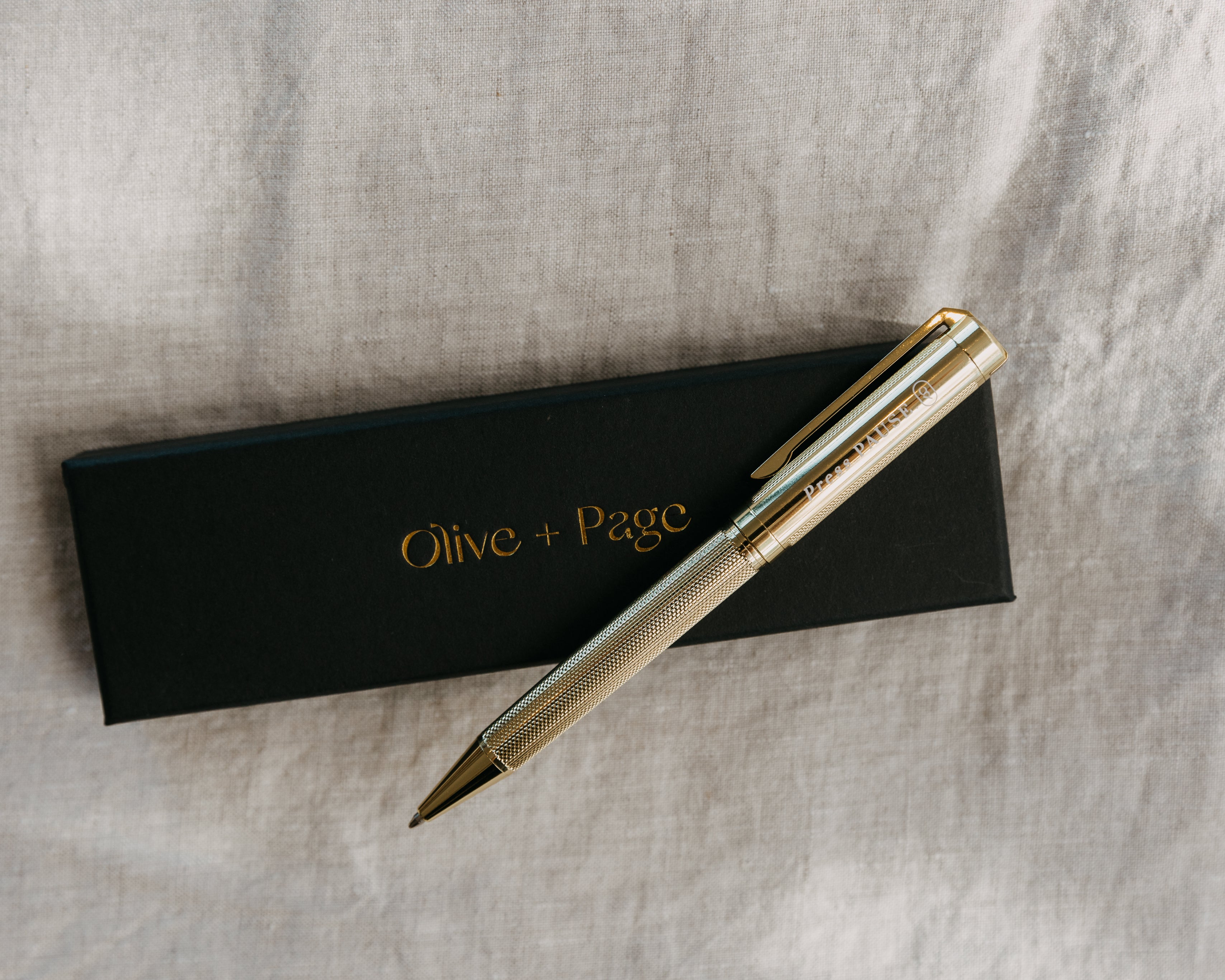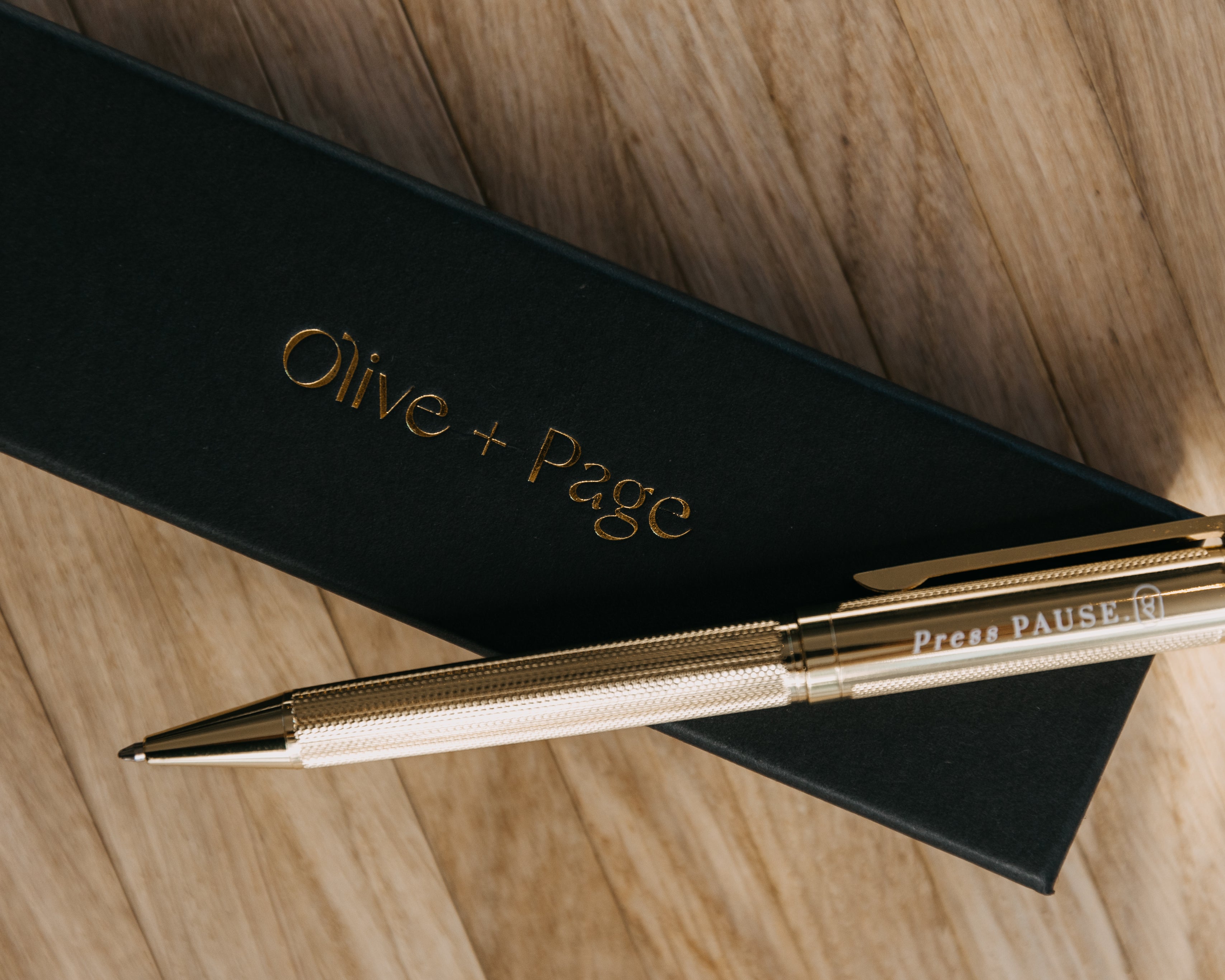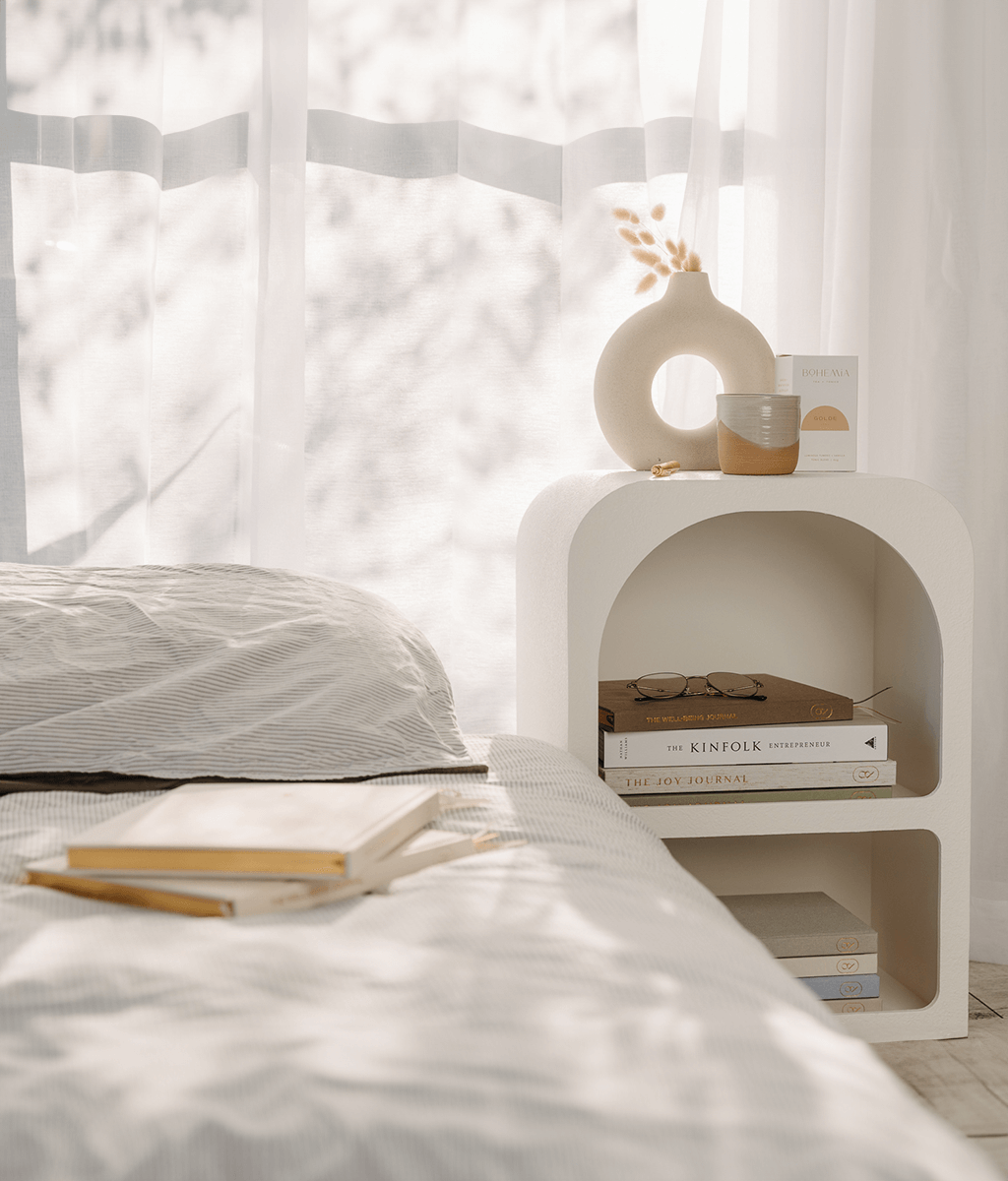The world we live in today is synonymous with a constant state of busy. As decades have passed, expectations have risen. Nowadays, there seems to be an ingrained belief amongst modern society that the more we fit into our days, the more successful we are. People boast badges of busyness and overwhelm like it is something to be proud of. And yes, until recent years, this used to be me. But being over-busy is no longer something I strive for.
You see, in reality, the more crammed and rushed our days are, the more we are just skimming the surface of life. To quote Matt Haig, "Just as we need pauses between notes for music to sound good, and just as we need punctuation in a sentence for it to be coherent, we should see rest and reflection and passivity - and even sitting on the sofa - as an intrinsic and essential part of life that is needed for the whole to make sense."
Slowing down, pausing, and resting is an essential part of living a wholesome life. The richest moments – the ones with most meaning - are always the ones we bathe in completely.
Those little ordinary moments - the ones that might feel insignificant at the time - these are the ones that can turn into extraordinary memories, if only we make the time to notice and appreciate them.
Here are five tips I have learnt along life’s journey on how to slow down amongst the hustle:
- De-prioritise
When I was in corporate management in London, a wise woman once told me, “Take your to-do-list, and cross five things off – or let them fall off - chances are you don’t need to do them.” I will never forget her saying that. I decided to follow her advice, and do you know what happened? Nothing. Nobody noticed and I still excelled at my job. Yet it was liberating, freeing and I felt significantly lighter.
I have always been one of those people to put immense pressure on myself to achieve and do it all to the highest of standards, at the expense of my own happiness. It took me a while to realise that I was the only person responsible for setting boundaries and expectations to avoid the overwhelm. Even though life is very different now, I find it is something I still need of remind myself of.
Whether it be in work, household, family, or personal life (or in the constant battle of juggling them all), we can always apply the rule of de-prioritisation.
We don’t need to say ‘yes’ to every invite, extra-curricular activity for the kids, every favour we are asked to do, or every task that seems to fall on our laps. We can delegate, share the load, outsource, say ‘next time’, or ‘no’. We can re-set expectations with employers. We can leave household tasks for next week, or perhaps, next month. Or maybe, we don’t even need to do them at all?
Household tasks and work to-dos are never-ending. But moments with our families or special people are not.
De-prioritisation requires getting clear on your values and knowing the parts of life that are most important to you. Remember, by eliminating the unnecessary, it means we make room so that the necessary can speak.
- Be where you are
One of the best investments I have ever made in myself, was a six-month course in mindfulness. It was during this time that I became more self-aware of both my mind and body. I started to notice recurring thought patterns (of which, many tended to be unhelpful narratives). I was more aware of when I would get triggered, and I also became much more accepting of my thoughts and emotions, knowing that all of these - whether categorised as good or bad - would pass.
One of the things that became explicitly clear during this learning phase, was that in order to really live life, you need to be there for it. Not in your head. Not stuck in the past or future. Not rushing from one task to the next or trying to do five different things at once. You needed to be where you are in order to live a wholesome life.
One of the tools to mindfulness is meditation or breathwork. Slowing down and focusing on your breath, doing a body scan, and simply sitting and just observing without judgement – can do wonders for your wellbeing. Meditation has been shown to deactivate the sympathetic nervous system, or the fight or flight response. It puts you into parasympathetic mode, helping you to rest and relax, essentially moving you from the red zone to the green zone.
But mindfulness is not just about meditation. It is about stopping to notice your surroundings and soaking it all in. Employing the five senses wherever you are - what do you see, hear, taste, smell, and feel? It is about paying attention – to conversations, to nature, to what we are eating and consuming, and being aware of how we think and feel. Journaling is also another tool to help us be more consciously aware. This awareness helps us to really bathe in the experience of life.
- Leave idle time to do nothing
Often our schedules are so jammed packed – days and weeks are filled with structure – all to ensure we get the most out of life. So much value is placed on activities that are traditionally viewed as productive – yet the ironic thing is, time spent resting or doing nothing much at all, is when we really immerse in life.
It is during these idle times that we notice birds singing, the sheer beauty of a sunset, or when we feel the warmth of sunlight on our face. It is in these times of doing nothing that we see children playing. Emotion. Laughter. It is when we give ourselves some grace to reflect and process life. Idle time fosters creativity and new ideas. Pauses leave room for spontaneity, and often, the best memories are made in those unplanned moments.
So instead of viewing idle time doing nothing much as wasted or feeling guilty for resting -view this time as a necessary part of living a wholesome life. ‘Time you enjoyed wasting is not time wasted’ – unknown.
- Aim for early
How often do you get stressed due to running late? I have tended to be someone in life who believes they can fit a tonne of things into one day yet realising all too well that it leaves you feeling rushed the whole day, living with elevated cortisol levels.
It doesn’t need to be that way. Go slower. Schedule less. Expect less of yourself. Do one thing at a time and be present in the process. Do less but do it well. Be realistic about how much time it will take so you don’t find yourself rushing. And when you have appointments to get to, aim for early so you’re not always racing to arrive.
Speaking of early – on the whole, try to go to bed early, and rise early. Good quality sleep is vital in slowing down your brain and letting it reset itself and going to bed early ensures you wake up feeling rested.
These days, I tend to turn the lights out as early as 9/9.30pm and rise as early as 5am. I find those moments before the rest of the house is up not only peaceful but productive. During this time, I focus on writing, business planning or sometimes, just have idle time to myself enjoying a morning coffee. I find I rest more during the days I rise early, because I feel like I have created more time to do so.
- Prioritise you
De-prioritising might be a game-changer when it comes to slowing down, but there is one thing that should never fall off the list - and that is you. Prioritising you involves getting really clear about the things in life that bring you peace, contentment, and joy, and making a conscious effort to incorporate these into your life.
Often, the result of rushing through life is neglecting your mind, health, passions, spirituality, and your overall sense of self. When we make time to look after ourselves and do the things we love, it uplifts our spirits and radiates out to those around us.
I know for certain that since having a family, when I am kinder to myself, I am kinder to my family. When I neglect my own needs and expect too much of myself, I am easily irritable and just a bit of a grouch.
Things that fill my cup up are walking in nature, exercise, beach time, meditation, journaling, reading, listening to music, singing, learning something new, catching up with friends and family, going for a drive somewhere, and visiting a local cafe. They are simple things really. I don’t do them all at once, or every day, but I do weave these in and out of my life, as I realised pretty early in my motherhood journey that I needed them.
While it is harder to make time for you with a family, it actually becomes more important -because how we think and feel directly impacts on our loved ones. When we fill our own cup up, we have more to give to others.
~ ~ ~
Life doesn’t always need to be such a rush. We are in control of our choices, and we can choose differently. For me, while slowing down is something I am much better at these days, it is a continuous balancing act, and something I need to consciously remind myself of.
And I believe it is incredibly important to do so.
For it is when we slow down, that we really experience the fullness of life. It is taking the time to soak up little ordinary moments that lead us to the big, extraordinary memories. And it is during these times of going slow, that we will look back on life and know with a full heart, that we put the live into living.

